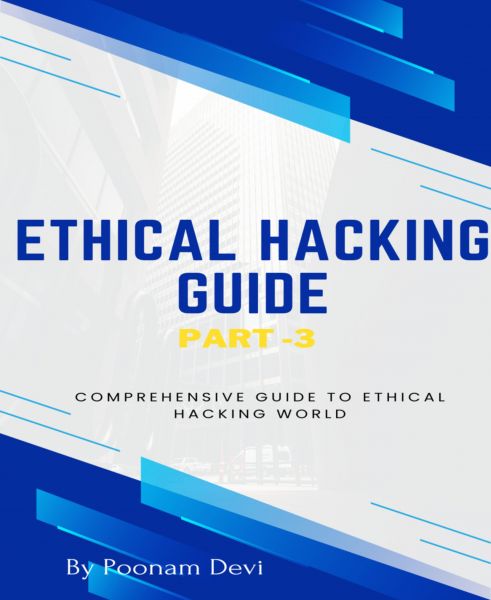ETHICAL HACKING GUIDE-Part 3
Comprehensive Guide to Ethical Hacking world
Ethical hacking, also known as penetration testing or white-hat hacking, is a practice of deliberately probing and assessing the security of computer systems, networks, applications, and other digital environments in order to identify vulnerabilities and weaknesses that could potentially be exploited by malicious hackers. The primary goal of ethical hacking is to proactively uncover these vulnerabilities before they can be exploited by unauthorized individuals or groups, thereby helping organizations strengthen their security measures and protect their sensitive information. Key aspects of ethical hacking include: Authorization: Ethical hackers must obtain proper authorization from the owner or administrator of the system before conducting any tests. This ensures that the testing process remains within legal and ethical boundaries. Methodology: Ethical hacking involves a systematic and structured approach to identify vulnerabilities. This includes various techniques like network scanning, penetration testing, social engineering, and vulnerability assessment. Scope: The scope of an ethical hacking engagement is defined before the testing begins. It outlines the systems, applications, and networks that will be tested. Staying within the defined scope ensures that only authorized systems are tested. Information Gathering: Ethical hackers gather information about the target systems, including their architecture, software versions, and potential weak points. This information helps them plan their testing approach. Vulnerability Analysis: Ethical hackers use various tools and techniques to identify vulnerabilities, misconfigurations, and weak points in the target systems. These vulnerabilities could include software bugs, insecure configurations, or design flaws. Exploitation: In a controlled environment, ethical hackers might attempt to exploit the identified vulnerabilities to demonstrate the potential impact of a real attack. However, they stop short of causing...
weniger anzeigen expand_lessVersandkostenfreie Lieferung! (eBook-Download)
Als Sofort-Download verfügbar
- Artikel-Nr.: SW9783755451679110164
- Artikelnummer SW9783755451679110164
-
Autor
POONAM DEVI
- Wasserzeichen ja
- Verlag BookRix
- Seitenzahl 25
- Veröffentlichung 01.09.2023
- ISBN 9783755451679
- Wasserzeichen ja

